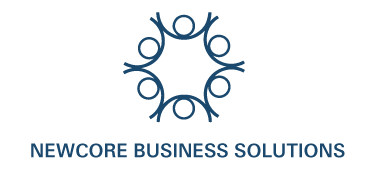How to Optimize Payroll Accounting for Your Small Business
Introduction:
Payroll accounting can be a complex and time-consuming task, but getting it right is crucial for your business. Not only does accurate payroll accounting ensure your employees are paid correctly and on time, but it also keeps you compliant with tax regulations and helps you manage your cash flow. In this post, we’ll explore strategies to optimize payroll accounting for your small business, so you can keep things running smoothly and efficiently.
Why Payroll Accounting Matters
Payroll isn’t just about cutting checks—it’s a critical part of your business operations. Proper payroll accounting ensures that you meet your legal obligations, avoid costly mistakes, and maintain employee satisfaction. When done right, it can also provide valuable insights into your labor costs and help you plan for the future.
Tips for Optimizing Payroll Accounting
- Automate Where Possible: Automation is key to reducing errors and saving time. Consider using payroll software that integrates with your accounting system. This not only streamlines the payroll process but also ensures that your financial records are always up to date.
- Stay on Top of Tax Deadlines: Missing a tax deadline can result in penalties and interest charges. Keep track of all payroll-related tax deadlines and ensure that payments are made on time. Many payroll software solutions offer reminders and automated tax filing options.
- Regularly Review Payroll Data: Regularly reviewing your payroll data helps catch discrepancies early. Conducting periodic audits of your payroll processes can also identify areas for improvement and help you stay compliant with regulations.
- Consider Outsourcing: If payroll accounting is taking up too much of your time or if you’re struggling with compliance, consider outsourcing to a professional service. This can free up your time and give you peace of mind that your payroll is being handled correctly.
- Implement a Clear Payroll Policy: A well-defined payroll policy ensures that everyone in your business is on the same page. This policy should cover pay periods, overtime, benefits, and other payroll-related matters. Clear communication of this policy helps prevent misunderstandings and ensures consistency.
The Benefits of Optimizing Payroll Accounting
Optimizing your payroll accounting not only makes the process more efficient but also contributes to the overall health of your business. Accurate and timely payroll accounting helps maintain employee morale, ensures compliance, and provides you with a clear picture of your labor costs—all of which are essential for making informed business decisions.
Avoid Common Payroll Pitfalls
Payroll mistakes can be costly and time-consuming to fix. Common issues include misclassifying employees, failing to keep accurate records, and not staying current with tax laws. By following best practices and staying informed, you can avoid these pitfalls and keep your payroll running smoothly.
Conclusion
Optimizing payroll accounting is crucial for any small business. By automating processes, staying on top of tax deadlines, and regularly reviewing your payroll data, you can ensure accuracy and efficiency. If payroll accounting is becoming a burden, don’t hesitate to seek professional help—doing so can save you time, reduce stress, and help your business thrive.







